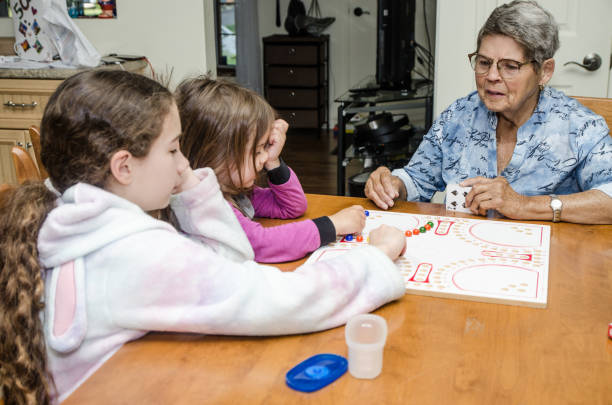Grandparents As Sitters – 3 Guidelines To Avoid Conflict

Trusting your sitter to watch your kids is a major stress factor for parents, whether it’s a regular sitter or just arranging Saturday night dates.
The anxiety and stress are higher when the child is younger. If the grandparents are present, pressure is reduced. Right?
If you’re lucky enough to be able to rely on your parents or inlaws to take care of your children, the relationship can present its challenges. It is a very different dynamic from a babysitter, even if your parents are paid to watch your children.
Grandma might have a different idea about routines and discipline than Mom. It can lead to tension between the parents, and the child could be living under two sets of rules.
Grandma or Grandpa may also feel that they are missing out on the opportunity to spoil their grandchildren, as they have already paid for their service the first time! Mom is upset because she’s the one who has to carry the load, while the grandparents are the heroes.
You’ll still have disagreements about everything from dealing with misbehavior to potty training.
You can have the best of both.
Three guidelines will help you avoid any problems and ensure everyone is happy with the arrangement.
1. Make a list of the non-negotiables
Truthfully, mom needs to be confident that her priorities will always be met.
Grandma must be able to adapt to her style.
List 3-5 things that are not negotiable. Mom can rest assured that her 2-year-old will nap from 1:00 to 3:00 every day (and not be grumpy for the whole evening), and Grandma is free to choose what they do at nap time.
2. Take a moment to review your week
Sit down with each caregiver once a week to briefly discuss what was successful and what challenges they faced.
You can work together to create a solution, even if you don’t want to point fingers. For example, if Ben has been hitting recently, or Emma has a phobia of Grandma’s cat,
Please discuss with your child what you can do this week to encourage their independence.
It is possible to prevent power struggles by teaching kids how to accomplish real-life tasks, such as tying shoes or packing their lunch. Grandpa is a great teacher since he has more patience and time than Mom or Dad.
Your child will be empowered by her new abilities, and your grandparents will feel proud.
3. Plan for disagreements
You and Grandma are likely to disagree about childcare at times. These issues can be hard to discuss, as many child-related topics are emotionally charged in families.
For a successful resolution of disagreements, you should agree on a plan in advance and use good communication.
It’s better to avoid statements such as “You never …” or “You always …,” which may put someone on the defensive. Instead, use “I feel” messages.
It may sound something like: “I think you disrespect my parenting by not respecting the bedtime routine,” or “I don’t feel you respect my time if you arrive home late without calling me to tell me.”
A respectful and carefully worded statement can go a long way in starting a productive discussion.
Work on the solutions. After everyone has voiced their concerns, come up with a list of possible solutions. Talk about which solution will be in your child’s best interests first. Then, discuss with the other parties. In your Weekly Review, discuss the success or failure of the solution you implemented.
Final Thoughts
You can enjoy your career or your night out without worrying about your child’s care. You can also keep the family dynamic positive for all involved.
In just one hour, I will teach you how to get kids to listen to you without yelling or nagging. You can share these tools easily with Grandma or Grandpa so that everyone is on the same page.
As always, I wish you the very best in your parenting journey!













